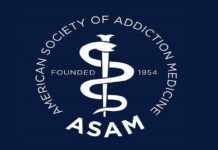A new study by the European Union’s law enforcement agency Europol suggests there is a correlation between the impulsive euphoria that is associated with computer hacking and the fabricated pleasure-inducing reward produced by using drugs and alcohol.
Computer hacking began at a single place before it proliferated across the world, bringing with it much controversy and political scandal. It began at the Massachusetts Institute of Technology, where students began engaging in elaborate pranks that eventually found their way onto the internet. The power and responsibility of computer hacking became much more relevant and serious when hackers realized they could hack into virtually anything they could figure out how to get into.
The inception of hacking, like drug addiction, is conducive to formative teenage years. According to the National Institute on Drug Abuse, “… research shows that the earlier a person begins to use drugs, the more likely he or she is to develop serious problems.” The same could be said for computer hacking, the only thing that is up for debate is whether to consider hacking a “serious problem.”
“Dopamine can be released quickly as vulnerable youth achieve frequent and rapid successes online,” the Europol statement reads. “And if these successes are linked to antisocial acts, such as hacking, they will be reinforced to pursue further ends to obtain their gains.”
Though, recreational drug use and hacking are both considered antisocial activities, hacking collectives like Anonymous and WikiLeaks have shown that computer hacking can be a social and interactive sharing of vital information. The latter even played a role in the 2016 presidential election by releasing hacked emails from Hillary Clinton’s campaign chair John Podesta.
Despite the fact that computer hacking cannot lead to a physical dependence like drugs or alcohol can, the release of neurotransmitters like dopamine resemble the reward of pleasure created when someone indulges in drugs, alcohol, gambling and food. In other words, the same pleasure seeking that results in using substances may also result in compulsive activities such as gambling and computer hacking.
Gary Rimar is a hacker turned cyber security analyst. “Basically, I analyze computer systems to see if they’re at risk of attack,” he said.
Rimar is also a food addict that went through treatment with the help of various support groups. His eating disorder helped numb the pain of an abusive childhood. “You can be addicted to any behavior or substance,” he said. “It becomes an addiction when the coping behavior is maladaptive.”
Hacking, like addictive substances you can put into your body, is a way to solve problems. The thrill-seeking of hacking is similar to the… (continue reading)
















